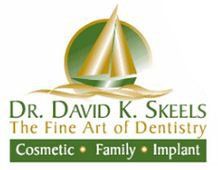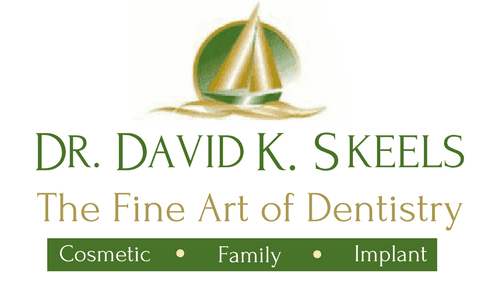Call for an appointment! (585) 467-7000
Dry Mouth
Dry Mouth in Rochester NY
You've probably felt your mouth go dry when you felt stressed, scared, or upset. But if you suffer from frequent or constant dry mouth in Rochester, NY, you likely need attention from a trained oral health professional.
At Dr. David K. Skeels, we don't just help patients improve their oral health, but their overall health as well. We help patients overcome dry mouth at our Rochester, NY location. If you experience discomfort due to lack of saliva production, trust our staff.
Below we summarize the causes, effects, and treatments for dry mouth our Rochester, NY staff uses.
Causes of Dry Mouth
Many individuals who experience dry mouth write it off as a symptom of aging. However, persistent dry mouth does not represent a natural state and can indicate a serious health condition.
The most common causes of dry mouth include:
- Disease:
Any disease affecting the salivary glands can cause dry mouth. Some of the most serious of these diseases include diabetes, HIV/AIDS, and Sjorgren's syndrome. Dry mouth may also indicate chronic dehydration.
- Medical therapies:ts impact saliva production.
- Medication:
Some prescription medication cause dry mouth as a side effect. Common culprits include medication for high blood pressure and depression.
- Nerve damage:
Injuries affecting the head or neck may damage the nerves linked to your salivary glands and cause dry mouth.
Effects of Dry Mouth
On the most basic level, dry mouth creates discomfort, makes swallowing more difficult, and causes oral soft tissues to feel rough or irritated. In the long run, however, dry mouth has serious consequences, including:
- Advanced tooth decay
- Bad breath
- Changes to tasting and eating
- Hoarseness
- Oral infections, such as thrush
Treatment for Dry Mouth
To reduce the effects of dry mouth, take the following steps:
- Avoid caffeine, tobacco products, and spicy foods
- Chew sugarless gum to increase saliva production
- Practice good oral hygiene
- Stay hydrated
- Use a humidifier
If your dry mouth persists, talk to your doctor and your dentist. Your doctor may adjust your medication doses or medical therapies to diminish the effects. And your dentist can evaluate the causes of your dry mouth. He or she may then prescribe artificial saliva or a medication that increases saliva production.
Mouth Discomfort Care
Do you live with the discomfort of dry mouth? Our Rochester, NY dentists can give you the care you need. To learn more or schedule an appointment, call us today at (585) 467-7000.
Contact Us
(585) 467-7000
info@skeelsdentistry.com
Hours of Operation:
Monday - Thursday, 7:30am - 5:00pm
ADDRESS



